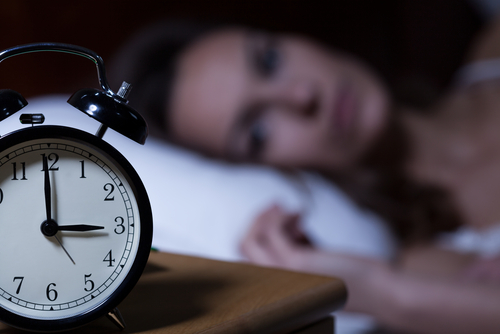How to Get a Good Night’s Sleep on a Business Trip: Part 1
Flights. Jet lag. Hotel rooms. Meetings. Conferences. Drinks.
Business travel can be tough for a lot of reasons including not getting a good night’s sleep- but you need your sleep so your performance and work isn’t affected.
Here are five tips for getting a good night’s sleep on a business trip.
- Make a preemptive jet lag plan. Before you go, makea plan such as including a sleep kit with eye mask, ear plugs and neck pillow.
- Avoid alcohol. It may be hard to avoid drinks with clients, but limit them, drink water in between, and opt for weaker ones.
- Hit the gym – or the hotel fitness center. As we’ve discussed before, exercise can help you sleep. Just 30 minutes will do your body good and increase the quality of sleep you get.
- Plan for stress. Take care of stuff at home before you go, and anticipate delays and holdups. If everything goes smoothly, great! If not, at least you were ready.
- Stay hydrated and eat healthy. Avoid sugar and caffeine; eating as healthy as possible while on the road will keep your blood sugar stable and help you sleep well.
Do you have any tips for a better night’s sleep on a business trip?
Business travel and sleep do mix; they have to, or you will be far less productive than you may think. Business travel demands high performance amid stress, hectic schedules, heavy meals, and late nights — all a recipe for poor sleep.
If more of us realized the importance of sleep to performance, not to mention health, we would get a lot more done and feel a whole lot better doing it. Losing as little as one and a half hours for just one night reduces daytime alertness by about one-third. Excessive daytime sleepiness impairs memory and the ability to think and process information. Sleep deprivation also leads to mood alterations, attention deficits, slower reaction times, and increased risk for accidents. And sleep deprivation is cumulative, building a sleep debt that must be paid.
Alertness Solutions, headed by Mark Rosekind, PhD, a former director of NASA’s Fatigue Countermeasures Program, conducted a study of travelers on trips crossing more than two time zones and lasting two to four days. It revealed some interesting findings and confirmed others:
- A few hours of lost sleep combined with business travel significantly reduces performance.
- Business travelers perceived themselves as performing at a much higher level than they actually did (a 20% drop).
- Travelers actually performed best during mid-day, not early morning, which many consider to be prime time for productivity.
- Of those who rated their performance highly, half fell asleep unintentionally on the trip.
- Study participants slept, on average, only five hours the night before a trip, the lowest of the entire seven-day monitoring period. But they reported getting an hour more sleep than they actually did. “Any sleep period less than six hours a night begins to significantly diminish performance,” Rosekind says. “Essentially, travelers are at a decreased productivity level before they even walk out their door.”
- Those who exercised during their trip performed an amazing 61% better than non-exercisers.
- Study participants registered a total sleep loss of almost eight hours by the time they returned home, the equivalent of one full night’s sleep.
No matter what is causing your sleep issues, Alaska Sleep Clinic can help you improve your sleep and your life!
Behavioral Treatment for Insomnia
![trust-bbb_torchaward_graphics_TorchAwards_header_finalist[1]](https://www.alaskasleep.com/hs-fs/hubfs/trust-bbb_torchaward_graphics_TorchAwards_header_finalist%5B1%5D.png?width=2001&name=trust-bbb_torchaward_graphics_TorchAwards_header_finalist%5B1%5D.png)



